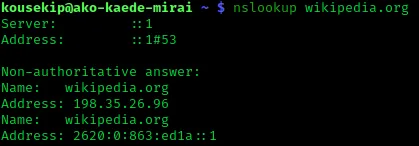Who is hosting this? A simple guide to identifying a website hosting provider

Ever wondered: “Who is hosting this website?”. Understanding the internet domain is crucial as it helps identify the web hosting provider behind a website. Whether you’re a curious web user, a budding developer, or someone interested in discovering more about the digital landscape, knowing the web hosting provider behind a website can be insightful and useful.
This blog post will walk you through the steps to easily identify the web hosting service provider of any website, as well as web server details that may impact performance, helping you easily answer the question “Who is hosting this?”:
1. Use online tools for quick results
If you’re looking for a fast and straightforward way to discover the web hosting provider of a website, many free online tools are available for this purpose. A hosting checker tool is specifically designed to give you instant information about who is hosting this website with just a few clicks.
- Whois lookup: Start with a Whois lookup tool, like Whois.com. Enter the domain name, and you’ll get a detailed report. Pay attention to the “Registrar” or “Hosting Provider” sections, which often reveal the web hosting company or web host.

- Hosting checker tools: Websites like HostingChecker.com or WhoIsHostingThis.com are dedicated to identifying web hosting companies. Simply enter the URL, and these tools will do the rest, giving you the name of the web host in seconds.

- Reverse IP lookup: For a more detailed approach, try a reverse IP lookup using ViewDNS.info. This can show you all the domains hosted on the same web server, which can sometimes help you identify the web hosting provider.

2. Analyze DNS records for clues
Another method to uncover a web hosting service provider is by analyzing its DNS records, which are part of the domain name system. This method gives you a deeper look into the website’s technical setup.
- DNS Lookup Tools: Tools like MXToolbox or DNSstuff can perform DNS lookups for you. Enter the domain name to see its DNS records. The nameservers (NS records) often point directly to the web hosting company. For example, if you see ns1.bluehost.com, the site is likely hosted by Bluehost, one of the top web hosting companies.

3. Inspect the website’s source code
Sometimes, when asking yourself “Who is hosting this?”, the information you need is hidden in plain sight—within the website’s source code.
- Look for HTML comments: Web developers occasionally leave comments in the HTML code that mention the web hosting environment. To find these, right-click on the website, select “View Page Source,” and search for terms like “hosted by” or “powered by.” You might also come across human-readable website addresses, which are easier to remember and can sometimes be found in the source code.
- Check the CDN (Content Delivery Network): The URLs of images and other assets on a website can also give you clues. If you see something like cloudfront.net, it suggests the site is using Amazon Web Services as its web hosting provider.
4. Leverage command line tools
For those who are more technically inclined, command-line tools offer another way to identify a website’s hosting provider and the web server hosting the website.
- Using nslookup: Open your command line interface and type nslookup followed by the domain name. This will return the IP address and sometimes the web hosting provider’s information.

- Using traceroute: The traceroute (or tracert on Windows) command shows the path your connection takes to reach the server. This path can sometimes reveal the data center or web hosting provider involved.

5. Contact the website owner
If all else fails, or if you need confirmation, don’t hesitate to reach out directly to the website owner. Most websites have a “Contact Us” page or provide contact information in their privacy policy. A polite inquiry about their web hosting provider might get you the answer you need.
Conclusion
Determining “Who is hosting this?” when looking at a website isn’t as challenging as it might seem. Choosing the right web hosting providers is crucial for optimal website performance and quality. With the variety of web hosting companies and tools available, you can find this information quickly and easily. Whether you’re using online lookup services, analyzing DNS records, inspecting source code, or diving into the command line, there’s a solution for every level of expertise.
If you’re in the market for a web hosting provider yourself, consider Fleek, a decentralized web hosting service that leverages IPFS and blockchain technology to offer a high-performance, low-cost, open-source, and censorship-resistant solution. Fleek’s seamless integration with popular tools and its focus on decentralized infrastructure make it an attractive option for developers looking to take control of their web hosting environment while ensuring maximum accessibility and security.
So next time you find yourself asking, “Who is hosting this?” you’ll know exactly where to look—and maybe even where you’d like to host your next project.
Happy hunting! ⚡️